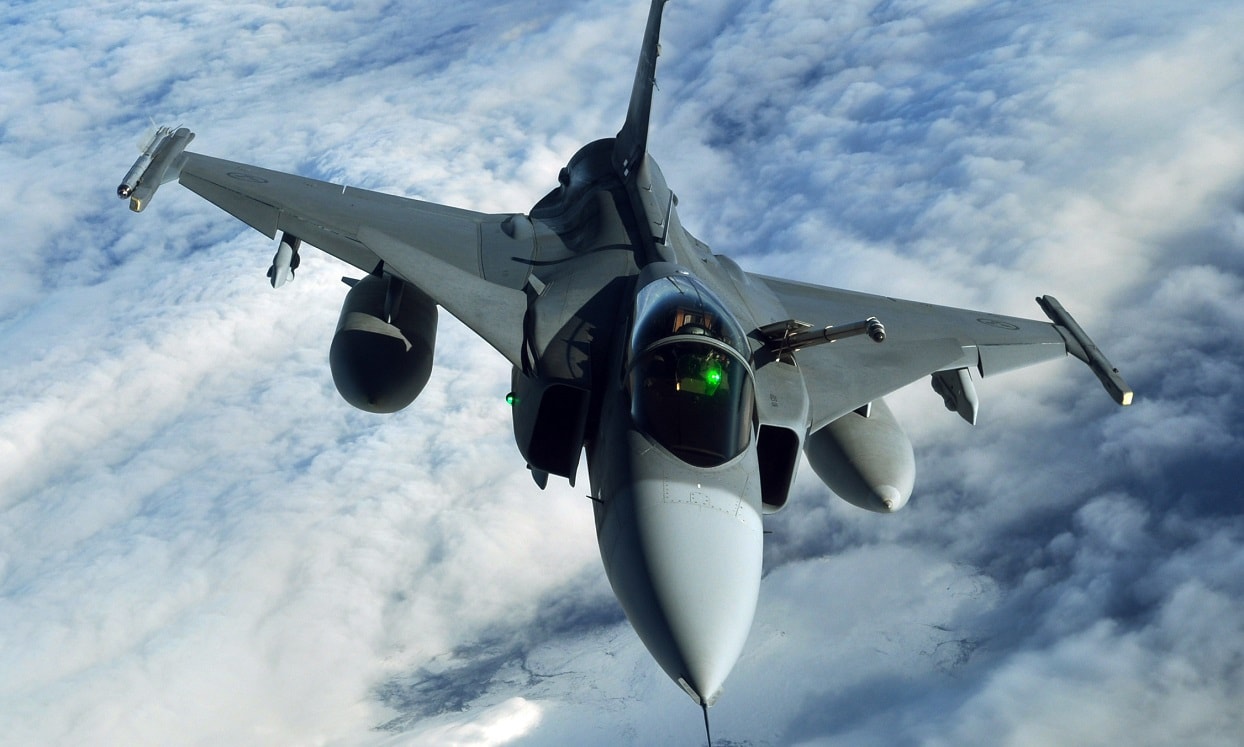Russia claimed time and time again that NATO expansion was a clear national security threat to Moscow. And yet, it seems he has created an even bigger headache for himself as Sweden and Finland seem set to join. The US military will only benefit if Sweden and Finland join NATO, top US military officials have said in recent days, echoing the enthusiasm of many in the US and Europe about those countries’ admission to the alliance.
“I look forward to the accession of Finland and Sweden to the alliance from a military perspective. Each of those militaries brings quite a bit of capability and capacity to the alliance from Day One,” Gen. Christopher Cavoli, the head of the US Army in Europe, told the Senate Armed Services Committee on Thursday.
Leaders from across the US military are complimentary of the Swedish and Finnish armed forces, a reflection of the close partnerships that they have developed with the US and its NATO allies.
“The Finns and the Swedes are extraordinary in their ability to distribute assets [and] protect themselves in a manner that is quite informative to us and at the same time generate combat power,” Gen. Jeffrey Harrigian, commander of US Air Forces in Europe, said in February 2021.
Cavoli, speaking at a hearing on his nomination to lead US European Command and be Supreme Allied Commander in Europe, said Sweden’s and Finland’s military capabilities and resources would ease their integration into the alliance.
Finland has “a large army” that is well equipped, “very well trained,” and can “very quickly” expand because most Finns have military training, Cavoli said.
“Sweden’s the same thing — a smaller army but a very capable army and an army that’s growing,” Cavoli said.
Since Russia attacked Ukraine in 2014, Sweden has approved substantial spending increases to add troops and acquire hardware. That growth and Sweden’s reputation for producing high-quality weaponry — including advanced non-stealth jets and conventionally powered submarines — would benefit NATO, Cavoli said.
“I think it will be quite easy for us to integrate them quickly. We’ve been integrating them in our large-scale exercises as well as our operations abroad for some years now,” Cavoli said.
Cavoli emphasized that Sweden’s and Finland’s geography would benefit NATO. Finland would more than double NATO’s boundary with Russia, but Finland has been “absolutely expert” in defending its border, Cavoli said, pointing to the 1939-1940 Winter War.
“Russia has not historically put too many ground forces on that border,” concentrating them elsewhere “because they thought they had a relationship with Finland that allowed them to do that,” Cavoli said. “That possibility will now go away.”
Sweden and Finland’s admission would also almost totally surround the Baltic Sea with alliance territory, creating what has been called “a NATO lake.”
That enclosure would present “a bunch of different dilemmas, almost geometric dilemmas, that Russia does not have right now as they sail forth from St. Petersburg and Kaliningrad, so it will be advantageous” for NATO, Cavoli said.
Both countries also have islands in strategically valuable locations in the Baltic. Sweden’s Gotland Island — to which it has redeployed military forces — “is sometimes referred to as the ‘unsinkable aircraft carrier,'” Cavoli added.
Sweden’s navy “will bring an enormous amount of surface capability to us in the Baltic Sea. They also have underwater capabilities that will help us as well,” Cavoli said.
The US Navy regularly trains with NATO navies in the Baltic, and that presence would increase were Sweden and Finland to join the alliance, Navy Secretary Carlos Del Toro said at a House Appropriations subcommittee hearing on May 18.
“I look forward to the prospect of Sweden and Finland joining NATO,” del Toro said. “I foresee a day where we’re actually increasing our maritime operations in the Baltic Sea.”
‘A new type of challenges’
Sweden and Finland remained outside of NATO for decades, even as both worked closely with the alliance.
Russia’s renewed attack on Ukraine in late February stoked public support for membership in both countries, however, and Finnish and Swedish officials submitted their applications simultaneously on May 18.
NATO Secretary General Jens Stoltenberg said their bids were “warmly welcome,” and more than 80 US senators have expressed support for expediting approval of them, but support has not been uniform.
In his questioning of Cavoli, Republican Sen. Josh Hawley expressed concern about whether their admission could eventually lead the US to station more forces in Europe, as the Biden administration signals it may maintain a larger force of 100,000 US troops in Europe as Russia’s attack on Ukraine continues. Others have argued their inclusion would bring more risks than benefits for the US. Turkey has also objected to their membership over what it says are security concerns.
Officials from Sweden and Finland have both emphasized that they would augment the alliance as it faces new and emerging threats.
In an interview in early May, the Swedish ambassador to the US, Karin Olofsdotter, pointed to Sweden’s long-running participation in NATO operations and intensifying military investment. “We are really bringing hardcore military security to the table,” Olofsdotter said.
Finland has “a long border but a peaceful border” with Russia and has always tried to maintain it as such, Pekka Haavisto, Finland’s foreign minister, said at an event Friday.
“At the same time, of course, we see that it’s not only about Finland but the whole of NATO is facing a new type of challenges by Russia. It’s not only traditional military challenges. It can be hybrid influence. It can be cyber influence,” Haavisto said. “We think that we have a lot of capabilities of addressing those sort of risks, so it hopefully adds to the security of the whole alliance.”
Christopher Woody edits and reports on defense and security issues for Insider. He is based in Washington, DC.

